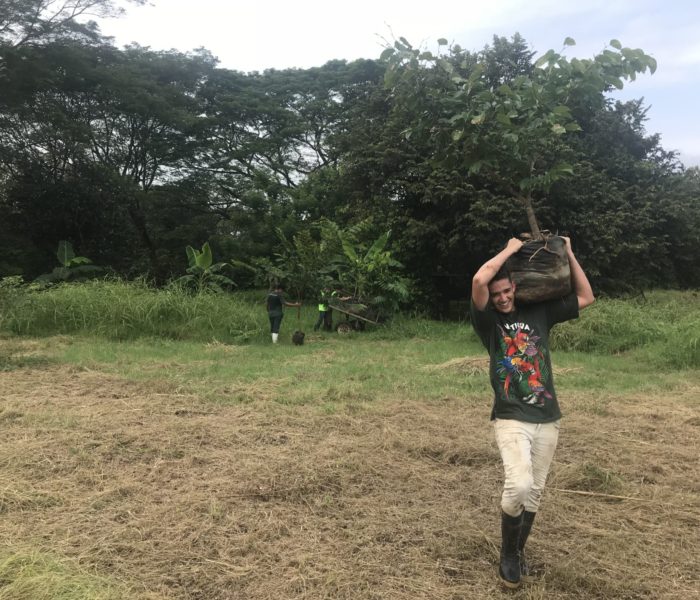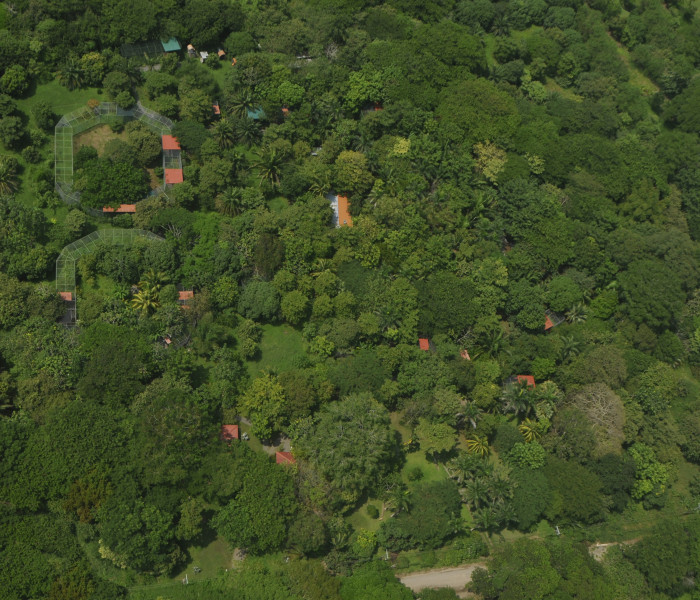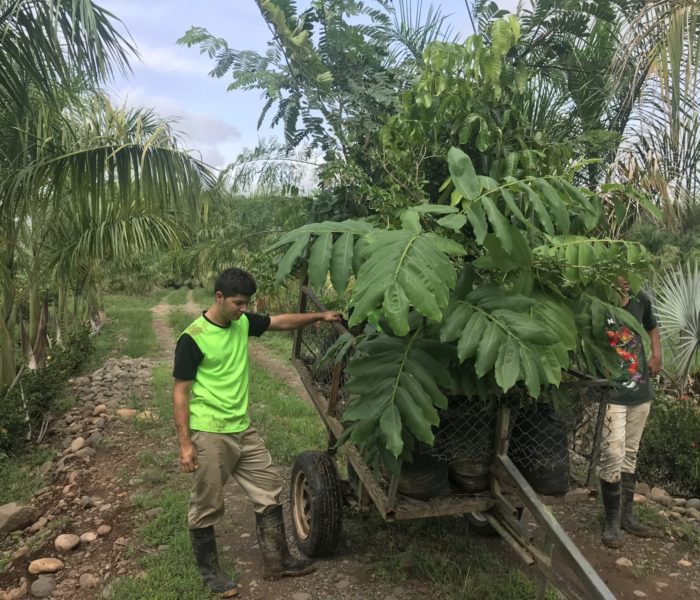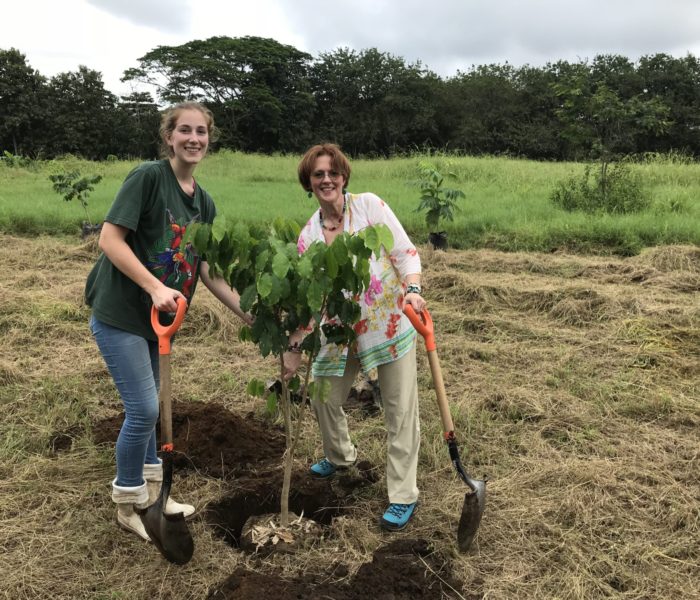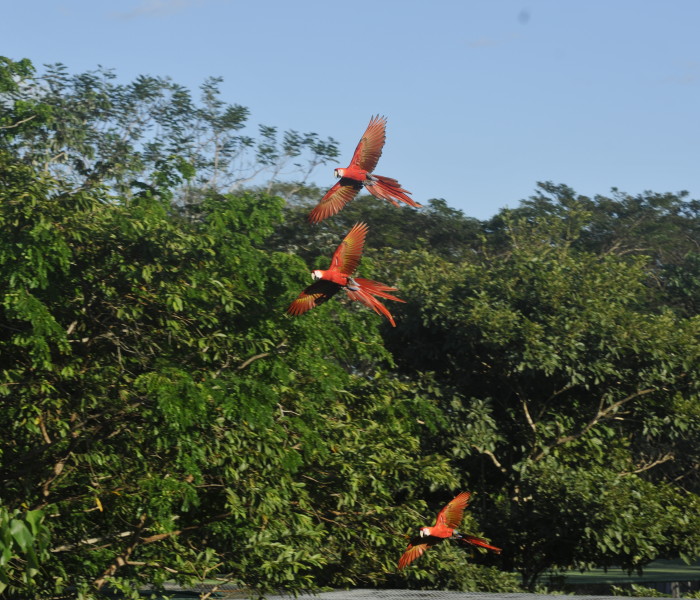Ecological restoration
The Macaw Sanctuary has been developing a native forest reserve to offer as a benefit to all the animals in the region, as well as those of the project.
Since 2000, the trees we have planted have provided food, water and habitat to hundreds of macaws, parrots, sloths, iguanas and howler monkeys, both residents and visitors. Many migratory birds also temporarily visit this oasis to restore their energy and continue their continental journey. The vegetation of the sanctuary, with abundant almond beach trees, jobos, guasimos, senizaros also provides a permanent home for many animals in the area to find refuge.
